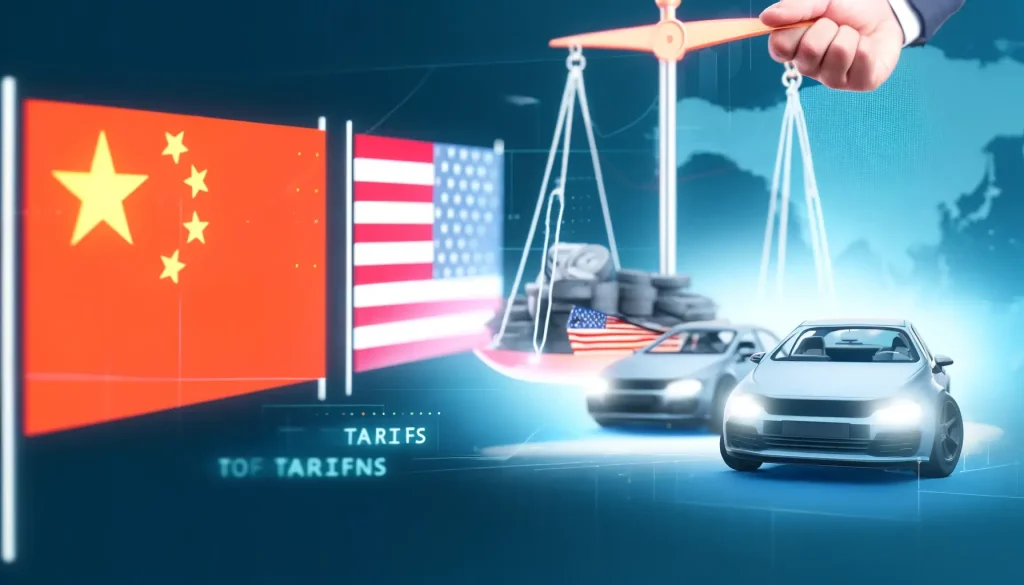China to penalize US, EU; may hike 25 percent car tariff
China has successfully taken control of majority of EV cars and battery manufacturing market. But the US and the EU are prepping its chances of upping its game in the EV sector by manufacturing maximum cars lead by the US automaker Tesla. Lately the United States and the European Union has taken note of malicious trade practices undertaken by Chinese manufacturers that led to stricter sanctions from them on Chinese companies. This infuriated Beijing that in retaliation is mulling of hiking its import tariff to 25% on foreign-made big cars. If this happens it is going to hit the western car market very hard since all these big engine cars from Maybach, BMW to Mercedes-Benz are manufactured outside mainland China.
It is just last week US President Joe Biden imposed steep tariff on Chinese imports, targeting especially the EVs to 100% from 25%. US officials have accused China of engaging in overcapacity in manufacturing to boost profits. The EU has also started to investigate Chinese companies across a range of industries, triggering a mass pull outby many Chinese firms from majority of rail and energy tenders. Ever since the supersonic growth of Chinese EV market is seen with suspicion by the West. Chinese EV automakers are invading foreign car markets with disdain and are under scanner over allegations of over exporting and cybersecurity concerns over the technology-equipped vehicles.
U.S. Treasury Secretary Janet Yellen recently shared her concerns over the global economic impact of China’s excess manufacturing capacity while addressing the American Business Community in Guangzhou, China.”Overcapacity can lead to large volumes of exports at depressed prices,” she said, noting that overcapacity would undercut American businesses, as well as those globally, including those from India and Mexico. “And it can lead to over concentration of supply chains, posing a risk to global economic resilience,” she said.
She noted that the European Union had launched an investigation into subsidies for Chinese electric vehicle exports to Europe, and that many countries see overcapacity from China as growing threat and are concerned that their own companies might be impacted, particularly in EVs, batteries, solar sectors, due to artificial cheap exports from China. During her visit to Guangzhou, China she also highlighted the alarmingly high bias against the American companies as how their access to certain benefits are curtailed leading to unfair treatment.
Chinese Premier Xi Jinping had made a small formal visit to Europe few days back but the actual agenda was to dissuade the EU bloc from having any sort of distrust on the Chinese companies. Xi was worried that the EU might get inspired by the US and would start imposing sanctions on Chinese firms. But for now the EU is conducting a full-blown investigation on Chinese EV manufacturers and would companies and would inform by June 5 whether it intends to impose any tariffs or not. China last week also hinted it could impose tit-for-tat levies on European wine and dairy products.
On May 21, 2024, Chinese Chambers of Commerce to the EU (CCCEU) was briefed by industry insiders that the China might consider increasing temporary import tariff rates on imported cars with large and superior engines. Liu Bin, the chief expert at the China Automotive Technology & Research Center, in an interview to a local media group called for temporarily increasing the tariff rate on imported cars with engines larger than 2.5 liters.“Certain countries and regions have taken restrictive measures in the new-energy vehicle sector, which run counter to the green development concept.Such measures will only hurt the interests of their own consumers,” Liu said, hinting at a sort of retaliation in response to EU’s investigation in Chinese subsidies.
America’s leading automaker company Tesla saw its sales drop to 2.3% in April 2024 as per a Year-on-Year report. Notably, Tesla has production both in Europe and China and every third car they sell in Europe is manufactured in China. In a way, Tesla here is caught in crosshairs as they are facing stiff completion from local Chinese companies like BYD and are rapidly losing the market share in Europe. Biden administration is aware of how China is aggressively displacing competition at the global stage and what is happening to Tesla is also happening with many other big car manufacturers such as Toyota Motors, General Motors, Honda Motors, and BMW. Therefore, to contain China the US has already levied tariffs on Chinese firms involved in manufacturing of chips, batteries, EVs, and even minerals that would impact roughly $18 billions of annual imports. The US also hopes similar restrictions would also come from other countries and series of events may trigger a global competition against Chinese companies.













